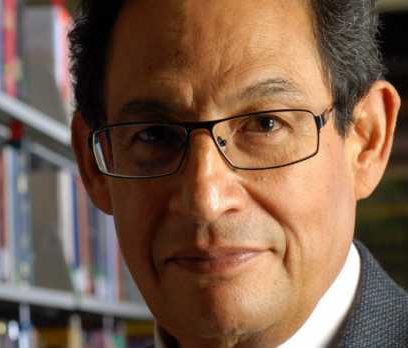Originally published in Reforma, February 15, 2017 as “Ruleta Judicial”.
By Sergio Aguayo
Twitter: @sergioaguayo

It is difficult to achieve justice in Mexico. The judicial system is designed to protect the powerful and punish the critics.
I confirmed this Mexican truism in the course of the first six months of litigation with Humberto Moreira, the former president of the ruling party (PRI or Party of the Institutionalized Revolution). Eight months ago Moreira sued me for 10 million pesos (about US$500,000 thousand dollars), in compensation for the harm I had caused to his “feelings, emotions, beliefs, decency [and] reputation” in a column I wrote on January 20, 2016, while Moreira was in jail in Spain because, in the view of the National Court of that country, he had committed the “crimes of money laundering, membership of a criminal organization, […] misappropriation of public funds, and bribery.” After my column was published he was exonerated.
Moreira has done well in his lawsuits, and ended 2016 emboldened. In December he declared to a Coahuila website that “they throw punches, I’ll throw lawsuits.” He is confident about emerging victorious from his litigation, and in a show of bravado to another website avowed that “we’re going to have to build three or four more Ceresos [jails] to find room for all the loudmouths.”
Understandable posturing. He has the means to pay his lawyers and appears to be favored by the Mexican president. José María Irujo wrote in El País that when he was jailed in Madrid the administration of Enrique Peña Nieto “placed at his disposal the entire diplomatic and legal machinery of its embassy in Spain in order to […] establish his legal situation, […] support his family, and get him out of jail.” Last week I experienced the opposite: the embassy of Mexico in Spain refused me the assistance I requested to obtain an urgent power demanded by a federal judge who is examining an aspect of the lawsuit.
A Mexico City judge, Alejandro Rivera Rodríguez, has also protected him. At the beginning of the lawsuit—in September 2016—he ordered the National Banking and Securities Commission to hand over my bank statements to Moreira; unnecessary because I have not been convicted. My lawyers lodged an appeal; the judge accepted it, but imposed a guarantee of about US$10,000, covered with an emergency loan from El Colegio de México (I am a professor there). Last week, the judge ordered that this money be handed to Moreira’s lawyer, who is not even a party to the litigation.
The judge also authorized a psychological evaluation, with questions prepared by Moreira that condemn me in advance. Observe the wording: “The expert must determine whether, as a result of the discrediting, insults, mockery and false accusations of corruption, theft and links with organized crime attributed by […] Sergio Aguayo Quezada [to] Humberto Moreira Valdés his image and credibility as a public figure has been insulted.” We have already requested the judge to be changed from the Council of the Judiciary.
I have consulted colleagues who have been sued for moral damages and the pattern is similar. For Lydia Cacho the “judicial system is the executive arm of the personal revenge of politicians”; for Miguel Badillo: “Mexican justice is corrupt”; La Vanguardia de Coahuila has been through a “terrible” experience; and Javier Quijano Baz, lawyer of Carmen Aristegui, considers that a large number of Mexican judges are “ignorant” or “corrupt.”
Michel Forst, United Nations rapporteur on the situation of journalists and human rights defenders, agrees with these statements. In a report dated January 24, 2017, he states that in Mexico there is a “deliberate misuse of law” and that “filing unfounded complaints” against journalists and human rights activists is a form of intimidation.
The troubling experiences of recent months have been balanced by the solidarity, affection and support of countless readers and organizations such as Article 19— my representative—and the Mechanism to Protect Human Rights Defenders and Journalists. My lawyers—Héctor and Sergio Beristaín—believe that we will win because there are honest judges. Lydia Cacho always hoped to “find those few ethical and responsible judges” and Rosa Esther Beltrán, a columnist for La Vanguardia de Coahuila who has also been sued, encountered a decent judge.
I hope to emerge safely from this encounter with the roulette of an expensive, slow and unpredictable legal system. For the moment, the only certainties are that the government of Enrique Peña Nieto and a judge in the capital city favor and protect Humberto Moreira, former governor and former president of the PRI.
With the support of: Maura Roldán Álvarez.
***As part of Justice in Mexico’s ongoing support for journalists committed to human rights, transparency, and justice, Justice in Mexico has created a GoFundMe donation page to contribute to Sergio Aguayo’s legal defense fund. For those who wish to support and protect freedom of expression in Mexico, please consider donating to Sergio Aguayo’s legal defense fund. Details can be found at: https://www.gofundme.com/SergioAguayo




